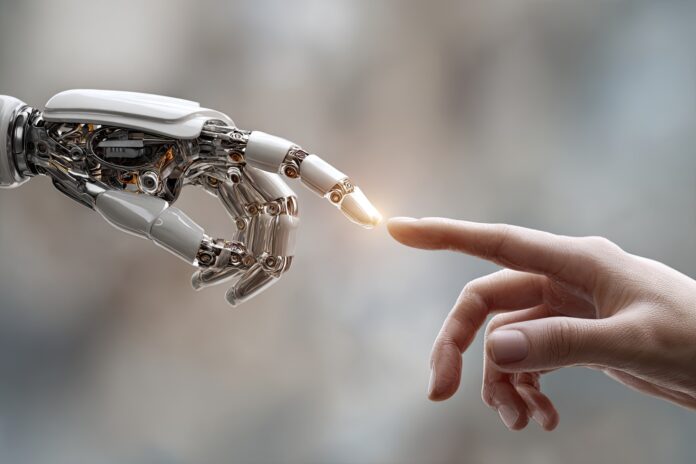Enough with the Hype: Let’s Get Real About “AI Co-Workers”
AI co-worker is a phrase that shows up in modern workplaces so often it almost seems normal. Every new software platform wants to bill itself as your next indispensable teammate. Most importantly, organizations are racing to display tech-savvy credentials by boasting about seamless collaboration with “digital colleagues.” However, we need to pause and reflect: does this narrative really serve us or our workplaces?
Understanding the Nature of AI in the Office
AI has made seismic shifts in how teams approach everyday tasks. From sifting through troves of data to automating repetitive processes, AI has become a workplace staple. Because of its rapid advancements, people are both fascinated and wary. Yet amidst this evolution, labeling AI as a “co-worker” crosses the line between accurate description and overhyped anthropomorphism.
Why Do Companies Call AI a Co-Worker?
Some organizations hope to build excitement about new initiatives. Others may think it helps staff warm up to unfamiliar technology. But using personified language like AI co-worker can create more confusion than clarity. For example, HR newsletters and tech launches describe bots as “collaborators” or “teammates.” This anthropomorphic approach, no doubt catchy, risks giving employees the false impression that machines and people share the same workplace standing.
What’s Wrong with Anthropomorphizing AI?
Calling an AI system a co-worker distorts what it truly is: a sophisticated tool. While AI can process information, learn patterns, and generate impressive outputs, it does not possess awareness, intent, or empathy. Therefore, assigning it the co-worker label blurs the boundaries between humans and machines. Besides that, this risks undermining human contributions by suggesting that people are interchangeable with advanced algorithms.
According to the OECD’s latest guidance, workplace culture hinges on trust, meaningful engagement, and uniquely human judgment. By muddling the line between AI and people, we inadvertently retreat from these values.
Real-World Impacts: The Office Atmosphere Suffers
What happens when lines blur? Employees may feel threatened as if algorithms are evaluating them or, worse, competing for their jobs. Most importantly, research shows that anthropomorphizing technology can erode morale. Employees in environments where AI is pitched as a team member identify less with the company’s mission and worry about being sidelined (Harvard Business Review, 2023).
Furthermore, equating AI to people muddles processes around accountability and responsibility. If an “AI co-worker” makes a mistake, who takes the blame? The answer should always be a person, as machines simply execute code and follow instructions. Assigning agency to non-sentient systems creates real ethical and procedural risks.
The Case for Clear, Purposeful Language
Words matter. By insisting AI is a co-worker, we encourage magical thinking about what AI can— and cannot—do. Clear vocabulary fosters realistic expectations. Therefore, referring to AI as an “assistant,” “platform,” or even “automation tool” provides transparency. These terms acknowledge AI’s strengths while leaving space for the irreplaceable breadth of human skills: emotional intelligence, creative problem solving, and the ability to adapt on the fly.
Training staff to partner with AI as a resource—rather than seeing it as competition—creates trust. It makes integration smoother, reducing fear and driving implementations that augment rather than threaten human value.
How to Embrace AI Effectively at Work
For companies keen to leverage AI, successful adoption hinges on honesty and inclusion. Provide robust onboarding to explain AI capabilities and limitations. Invite employee feedback on real-world use cases. Align AI-driven change with core organizational values. Because technology continually evolves, open dialogue and ongoing training remain essential.
Set clear boundaries: AI can crunch numbers, analyze trends, summarize reports, and flag urgent emails. But empathy during a tough meeting? Inspiring team innovation? That remains uniquely human territory.
Preserving Humanity in the Age of Algorithms
Human teams thrive on trust, accountability, and connection. Replacing a support desk operator with a chatbot does not make the bot a colleague; instead, it’s a new tool in the toolbox. Most importantly, we must continue to recognize, reward, and build up the skills and sensitivity that only people bring.
This clarity not only protects employee morale but also ensures organizations can deploy AI effectively, ethically, and with intention. As the McKinsey State of AI report emphasizes, sustainable progress happens when human wisdom guides tech adoption—never the other way around.
Embracing Reality: Let Tools Be Tools
We all want to appear forward-thinking and innovative. But to do so, we must distinguish between reality and marketing spin. AI co-workers are not real; only AI-powered tools, platforms, and assistants augment human achievement. Every successful digital transformation has one thing in common: Respect for human expertise at every step.
Therefore, the next time you consider calling your AI a co-worker, think twice. Choose words that respect both your people and your tools’ true merits. Reserve the role of “co-worker” for those who show up, learn, adapt, and care. In the end, the most successful organizations keep humanity at the heart of their digital future.
What’s Next? Fostering Healthy Human-Tech Collaboration
The takeaway is clear: Stop calling your AI a co-worker. Leverage it. Understand it. But don’t confuse it for what it isn’t. Technology should enable people, not compete with them for recognition or identity. Above all, let’s maintain a workplace culture that places human connection, ethical design, and authentic collaboration at the center—no matter how advanced our digital tools become.



